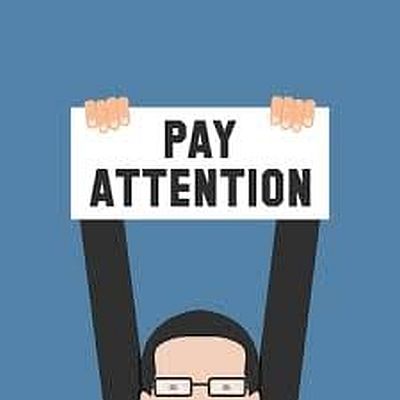The other evening, I just wanted to relax, do something mind numbing. I went to Netflix and one of the old Jason Bourne movies was recommended. I’m a spy/action adventure addict. I love watching these movies, as preposterous as the story line might be.
I’ve always loved watching Matt Damon in these movies. He is constantly on “high alert.” His head seems to be on a 360% swivel, taking in everything going on around him, developing strategies for dealing with anything that might arise. Even if he is in deep conversation, he somehow seems to be hyper conscious of what’s going on.
As he was preparing to take some sort of action, he “researched.” He researched his “opponents.” He researched the building might he be entering, what were the escape routes, who might be in the building, what kind of security would be in place, what might stand in the way of his accomplishing his goal. And that prep helped freed him up to be intensely focused on what was happening around him while he was in the building.
In his Bourne character, Damon is displaying a skill called “situational awareness.”
It’s a common part of one’s training in any military, police/fire/emergency service. It’s the ability to focus, simultaneously, on the core issue one is confronted with, while at the same time being aware of other things going on, which may impact what you are trying to achieve.
Situational awareness is critical to each of us. Yet, in our crazy busy worlds, too often, we aren’t paying attention to what’s going on.
When we tend to do the same thing, over and over, we tend to become numb to what’s really happening. We go through the motions. We start taking things for granted, we may become distracted, missing something that’s important.
And, overt time, our past experience distracts us from what is happening at this very moment. Or our focus on our goals distracts us. We stop paying attention.
Other terms we use for situational awareness, include being present, paying attention, and being prepared.
Too often, it seems we miss what’s really going on because of our lack of situational awareness. We know what we want to accomplish, we have our scripts and talking points. But we aren’t as prepared as we might be for the customer. We haven’t done our research on their companies or them. We don’t know enough to understand what they might be facing, what might distract them, how they might respond. We are often surprised and unprepared. We don’t know how to respond.
Or we miss something, perhaps something that was said, perhaps the way it was said, perhaps the tone of voice or expression. Or we miss the opportunity to “read the room” (even virtually) to see how others are reacting or how we might draw them into the discussion. Too often, we hear what we want to hear, not what is really happening in the interchange. As a result, we and the people we are engaging become increasingly disconnected.
Situational awareness requires us to focus on what’s happening in the situation in which we are engaging people—what are they doing, why, how are they interacting or not, what restraints/biases are they bringing into the processes, how engaged, what is resonating with them, where do they seem to be on a different agenda, what’s changed from the previous interactions, what are they committed to, what are thy not committed to. Also, what are the things we are doing, the biases we bring, things we may be inferring that may be inaccurate, how are we responding to the changes and shifts, are we making progress, and so forth.
It requires us to listen and pay attention. To hear what’s being said and how it is being expressed. We have to focus on the person we are speaking with, not something on our devices, or thinking about our next questions.
The majority of communication is non-verbal. If we aren’t paying attention to those non-verbal cues, we miss the majority of what’s going on.
Stated simple, situational awareness is about caring, paying attention, being present. Are you?

With appreciation to the US Marine Sargent, MOTBY
who led my induction training before posting to Caracas in 1973.
Situational Awareness saves lives, and wins Sales, as I later found.
I was leaving behind Glasgow,
then described by Time Magazine as “The Meanest City”,
where ‘Situational Awareness’ was just part of growing up.